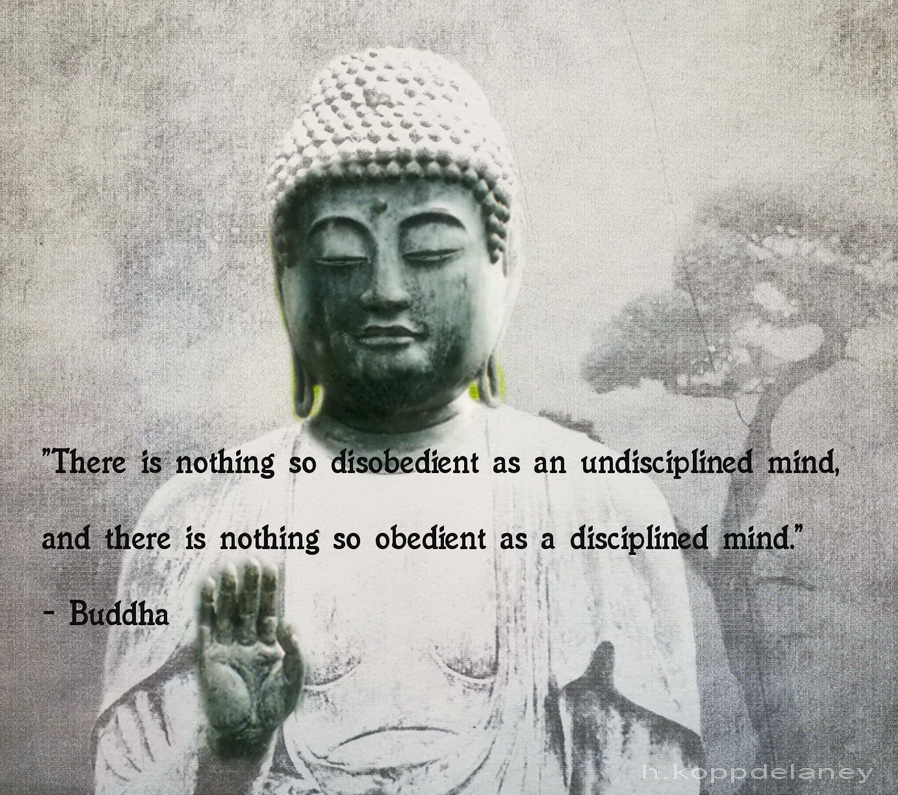
Every day I wake up and think “today is the day I’ll feel like I have a more meaningful purpose.”
I’ll be productive with my personal business, I’ll be of service to others, and dammit, I’ll get things “done” in the world.
Some days, I’m able to channel my inner badass and find the energy needed for such feelings and doings, but on others, every bit of my resolve flies right out the window by 9 a.m.
There are, however, indisputable ways to “practice” corralling what’s needed to feel a stronger purpose and it’s the practice alone we can use like building blocks. Once we’ve got the base, a stable structure comes together.
Here are 10 “musts” for a clear mind and a stronger purpose:
1. We must stop starting sentences with “I’m sorry, but…” We often say this when we are afraid to tell the truth. What are we sorry for exactly? For having an opinion or a conviction? For stating our perspective? Why do we begin by being sorry? This is a habit we must break.
If we are bothering to articulate a feeling or thought, we shouldn’t feel “sorry” about it, so why do we say it?
2. We must try like hell to keep our word. A good way to feel clear and purposeful is by keeping our word. When we do, people learn to trust us, which builds our self-esteem.
When I am reliable, and I do what I say I’m going to do, when I show up on time, I am actually telling others that I value their time as much as my own. Keeping our word (on every level) shows respect.
3. We must say goodbye to passivity. “Dropping hints” in a roundabout way is the worst and most annoying form of human communication. Being passive-aggressive about what we want can feel like a “failure setup” for our social circle.
When we specifically ask for what we want, instead of making others guess and wonder, we are telling them we know who we are and why we’re here. We are telling them what we want is important enough to be clear about it.
4. We must know the difference between what we want and what we need. When we figure this out, we naturally become more purposeful because we’ve managed to define our priorities. What we need comes first, and when we take care of that piece, what we want finds its way in. And the best part is that most of the time when we get what we want in life, it feels like we’ve earned it.
5. We must sever ties with those who drain us. Some people require too much energy and emotional investment from us. We can’t fix others, we can only fix ourselves, yet we try in the name of “love” to help them clear up their messes and drama.
The sooner we learn that we can’t fix people, the more time we can spend being purposeful in our own lives, instead of serving a purpose in theirs.
6. We must learn to meditate, not medicate. Masking and numbing pain seem to be the “human way” to deal with problems. How can we learn to “deal” with what life throws at us without it being a detriment to our personal growth? Is it yoga? Is it endorphin-inducing exercise like hiking or running? Quiet time with Buddha? Laying in a hammock?
We all need a daily dose of self-care, but doing so takes mindful practice because it means putting ourselves before others.
7. We must look outward, not inward. Helping those in need without seeking credit is the best way to count our own blessings. Feeding the basic needs of others is how we feed ourselves spiritually. Our purpose often comes through acts of kindness that have nothing to do with our own self-centered agenda.
8. We must stop lying. If we’re not “fine” why do we say we are? We don’t have to lay all our problems out on the table, but we need to be honest when we are communicating with others. Being truthful about how we really “are” helps others express the same, which is usually a healing experience. Also, we must stop asking others “how are you?” just to be polite. We should ask it only if we’re sincere and willing to listen without judgement.
9. We must walk our talk. Integrity is part of the purpose and clarity equation. A friend of mine asked me a pointed question once: “Why do you complain about your coworker for not reciprocating, but then seek validation from her by continuing to do nice things for her?” He was right to ask me that, and it stopped me in my tracks.
Friendship is a two-way street. Having “integrity” in this situation was simply about backing away from an interpersonal situation that only made me feel bad.
10. We must know ourselves well. What do we like? What do we avoid? What can we learn? Finding our way in the world means getting to know ourselves inside and out. What can we change? How can we be more proactive and less stagnant? When we know what makes us tick, we can do the things that bring us a clear sense of purpose, which leads the way to contentment.
Building a solid base by reminding ourselves to do the things we “must” do in order to achieve clarity is the key to a purposeful life. Practicing the “musts” can give us insight and wisdom about ourselves, which may illuminate a clear path toward a meaningful purpose.
It’s ultimately how we create our own happiness here on earth.
~










Read 3 comments and reply